I wrote this article in Japanese and translated it into English using ChatGPT. I also used ChatGPT to create the English article title. I did my best to correct any translation mistakes, but please let me know if you find any errors. By the way, I did not use ChatGPT when writing the Japanese article. The entire article was written from scratch by me, Saikawa Goto.
Introduction
Movies and books covered in this article

Three takeaways from this article
- After the Holocaust, there have also been mass killings happening all over the world.
- I strongly hope to be a person who does not make excuses like “it cannot be helped because it was an emergency”.
- The difficulty of being discriminated against based on factors that cannot be distinguished by “appearance”.
Self-introduction article


Published Kindle books(Free on Kindle Unlimited)
“The genius Einstein: An easy-to-understand book about interesting science advances that is not too simple based on his life and discoveries: Theory of Relativity, Cosmology and Quantum Theory”
“Why is “lack of imagination” called “communication skills”?: Japanese-specific”negative” communication”
The quotes used in this article are based on notes taken at the movie theater from movies in Japanese and are not direct quotes from the foreign language original movies, even if they exist.
The Tragedy of the “Holocaust” Reminds Us that Even in Times of Crisis, We Must Strive to Maintain Sound Judgment Like We would during Peacetime
When one hears the word “Holocaust,” the first thing that comes to mind would be Germany, and many of the countries that come to mind as being related to the “Holocaust” are probably those in the vicinity of Germany.
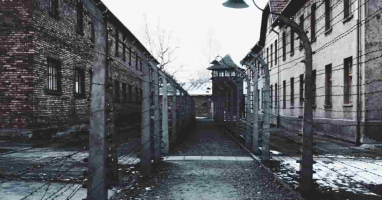
However, this movie deals with the tragedy of the Holocaust that occurred in “Norway”. The fact that “even the Nordic countries could not be unrelated to the Holocaust” was something I honestly didn’t know, so I was very surprised.

At the end of the movie, subtitles appeared stating that the Norwegian government had already officially apologized for the historical facts depicted in the movie. However, the apology was in 2012, only about 10 years ago. Of course, I think it was probably treated as a “public secret” within the country. However, I was also surprised that it was only 10 years ago that they admitted their fault and apologized.
This is truly a work depicting “unknown historical facts”.

It is Wrong to Think of the Holocaust as a “Past Event”
To someone who is not directly involved in the Holocaust, such as a Japanese person, hearing the word “Holocaust” might only leave an impression of an event that is mentioned in textbooks. Some people may feel that during World War II, it was just Germany or its leader Hitler who had gone “crazy” and that something like the Holocaust could never happen again.
But of course that is not true.

In 1975, Pol Pot massacred intellectuals in Cambodia. In 1994, the Rwandan genocide, which killed over one million people, occurred. The Tiananmen Square protests are still fresh in memory, and in 2021, the movie “Quo vadis, Aida?” was released, depicting the massacre in Bosnia in 1995.
And now, Russia has invaded Ukraine, and there are rumors of them massacring civilians.

In addition, while lives may not be taken away, citizens often suffer from conflicts of ideology and beliefs. There was a coup in Myanmar, Hong Kong is under pressure from China, and the Taliban has regained power in Afghanistan.
All of these can be called “something like the Holocaust,” and such terrible events continue to happen everywhere to this day.

Fortunately, I don’t think Japan is in danger of being caught up in a “Holocaust-like” situation at the moment. However, I don’t know how relations with neighboring countries, including North Korea, will change, and I feel that it’s not strange for Japan to fall into a situation like Ukraine at any time.

That’s why it’s important for us to know what exactly happened during the Holocaust.
I’ve decided to only watch movies in the theater, but before and after watching “Betrayed,” several movies dealing with the Holocaust were released. Every time I watch them, stories like “I had no idea about such facts” come up. The darkness is so deep that it becomes terrifying.

Even in Times of Emergency, I Want to Maintain the Same Judgment Criteria as in Peacetime
Not just the Holocaust, but when I think about if I were a party to the various “tragedies” throughout human history, I wonder if I would be able to make “appropriate decisions and actions”.
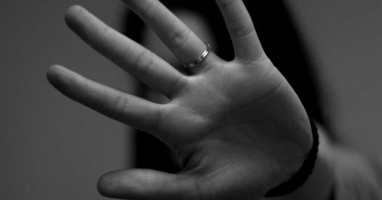
People who will live in the future can say anything. We can criticize those involved in tragedies throughout human history, saying things like “I would never do that,” “How could anyone do such inhuman things?” and “That’s not a decision anyone would make.”
But can we really assert that we would never take such actions?

Whenever I see news like the Hong Kong protests or the BLM movement in America, I can’t help but wonder how the police officers who are deployed to suppress the demonstrations feel. They have no choice but to take the side of the state as it is their duty. However, there may be some who empathize with the demonstrators. Still, they must do their “job” and crack down on the protests.
I’m sure many of those involved in the Holocaust felt the same way. There is a well-known experiment called the “Milgram experiment” which shows that “people will do incredibly cruel things if ordered by an authority figure.” Eichmann” was the man responsible for transporting Jews to concentration camps, and a psychologist named Milgram conducted this experiment because he wondered, “Was Eichmann really a diabolical man?

Even if someone is usually kind, there is always a possibility that they will change during an emergency. That is why I earnestly hope to be someone who can behave the same way during an emergency as they do during peaceful times. The best thing is to not get involved in such situations, but it is not something that one can choose for oneself. Therefore, even if I get caught up in it, I want to somehow hold on to who I am during peaceful times.


Content Introduction
The “tragedy” occurred on November 26, 1942. Rod, a member of the Norwegian Secret Police, summoned everyone, including those who were off-duty, and ordered them to “gather all Jews in Norway and put them on a ship.” The ship naturally headed to Auschwitz. Rod had to complete this mission in a short time of only 48 hours after receiving orders from above.
This is the tragic history of a nation, Norway, using the police to carry out the extermination of Jews.
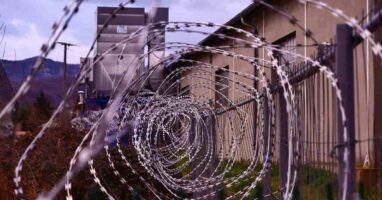
The story of the Braude family, primarily featuring Jewish characters, begins as the stage is set three years ago.
Charles, who had won as the Norwegian representative in boxing, is enjoying himself with his brothers in a bar. Although Charles is already considering marrying Ragnhild, he is bothered by the fact that she is not Jewish. This is because his mother is a devout Jewish believer and observes Jewish traditions such as Sabbath celebrations. However, Charles and his siblings are not particularly aware that they are “Jewish.” Their parents originally lived in Lithuania but fled to Norway because of persecution against Jews. Since the children have lived in Norway for a long time, they have a stronger sense of being “Norwegian” than of being “Jewish.”

Charles discreetly confirmed his family’s reaction and was able to marry Ragnhild without incident. It seemed that a happy life would begin, but unsettling news arrived. The German army had breached the fortress in Oslofjord. The German army demanded surrender from Norway, and the situation rapidly deteriorated.
After a while, Jewish men living in Norway were arrested en masse. Of course, the Braude family was no exception. They were taken away without knowing the reason for the arrest or anything about what was happening.

Impression
Can Westerners Distinguish between “Jewish” and “Non-Jewish” by Appearance?
Every time I learn about the Holocaust, I feel a sense of wonder. That is, “Can Jewish people be distinguished by appearance?” For example, it may be difficult for Japanese people to judge the country of origin by looking at the faces of Westerners, but surely they can do it. It’s probably the same as how we can vaguely distinguish Asian faces. And, in the same way, I always wonder if “Jewish” and “non-Jewish” can be distinguished by appearance.

Why am I talking about this? I know it’s not good to say, but I feel that it’s easier to understand the situation where “discrimination” arises if there are differences in appearance.

I don’t think it’s good to have a situation where “discrimination” arises from differences in appearance, but it’s easier to understand if one can distinguish them by appearance. “Looking different” means that “distinguishing” is easy, and “distinguishing” easily turns into “discrimination”.
However, if they can’t judge whether someone is a “Jewish person” by appearance, I wonder if the fact that the Norwegian government excluded Jewish people living in Norway would be like “BURAKUSABETSU” in Japan (“BURAKUSABETSU” means adiscrimination based solely on the reason of being born in a specific area, due to the influence of the caste system in the Edo period.)
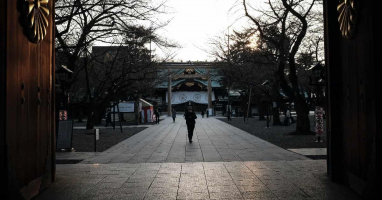
“BURAKUSABETSU” is a mysterious system to me. If we talk about whether we can tell by appearance, we shouldn’t be able to judge whether someone is “Burakumin” or not just by their looks. I’m a little surprised that discrimination can occur in a situation where something cannot be judged by appearance. I repeat, I do not approve of discrimination based on appearance. I just think that it is easier to understand the situation that way. On the other hand, the situation where discrimination arises from something that cannot be judged by appearance is simply a mystery to me.
And precisely because “we can’t tell by appearance”, it can be even more confusing.
I think the biggest difficulty of the Fukushima Daiichi nuclear accident was that “radiation cannot be seen with the naked eye.” If we could judge whether we were exposed or to what extent just by looking, it would have been a different situation. However, since radiation cannot be seen with the naked eye, it is impossible. And as a result, for better or for worse, everyone who was in Fukushima at the time of the accident is lumped together.
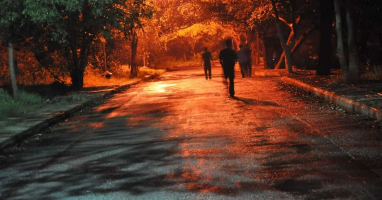
If they cannot judge whether someone is a “Jew” based on their appearance, the situation of the Holocaust is the same. That means there is only “Hitler’s delusion” there. There is no other way to describe how terrible such a situation is.
The Braude children had a stronger awareness of being “Norwegian” than “Jewish”. However, even though it was during the war, they were not seen as “Norwegian” and were subjected to cruel treatment as “Jews”. I was made to realize the horror due to because “it cannot be judged by appearance.”
There are Also People Like Rod Who Can Make Decisions Without Conflict
There is little description about Rod of the secret police, so I can only imagine, but he seemed to me to be a man who could make terrible decisions without hesitation, following orders from above, regardless of whether it was peacetime or emergency.
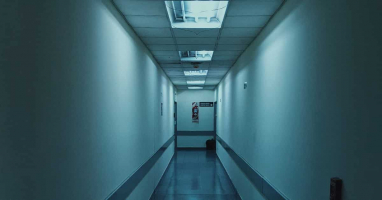

If Rod is that kind of person, it would be impossible to “convert” someone like Rod, and it would not even be worth the effort.
Probably, among Rod’s subordinates, there would be people who hesitated about the instruction to “gather the Jews and put them on a ship.” Given the situation, they would have understood what that instruction meant, and I think there were people who struggled with the conflict of indirectly being involved in such evil acts.
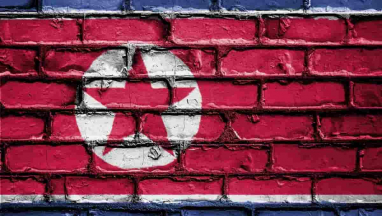
And it is precisely such people that we should pass down as stories.
I think this movie was a good piece as an entertainment movie. However, from an educational standpoint, I felt thatwe should focus on someone who hesitated to follow Rod’s instructions, was afraid, still went along with it, and later deeply regretted it, rather than someone like Rod.
Especially in this day and age, “people who have made mistakes” end up being simply criticized. However, if we continue to do that, people who have the courage to confess that they have made mistakes will stop coming forward. I believe that those who have made mistakes and regretted them are the ones who give us advice not to do the same thing. So instead of criticizing them easily, shouldn’t we have an attitude of accepting them on our part?
To avoid foolish tragedies, humanity must continue to do these things over and over again, and I was reminded of that once again.

Conclusion
Historical facts tend to be learned as “knowledge,” but I believe we should perceive them as “tragedies that could happen again in the future.” The Holocaust is precisely one such example.

Humans can become foolish to an unimaginable extent. That’s why it’s essential to know the “depths of human folly” and understand how far one can potentially “fall.”

Published Kindle books(Free on Kindle Unlimited)
“The genius Einstein: An easy-to-understand book about interesting science advances that is not too simple based on his life and discoveries: Theory of Relativity, Cosmology and Quantum Theory”
“Why is “lack of imagination” called “communication skills”?: Japanese-specific”negative” communication”







コメント